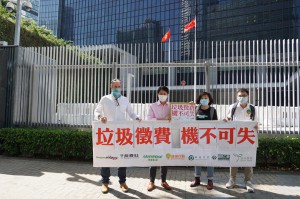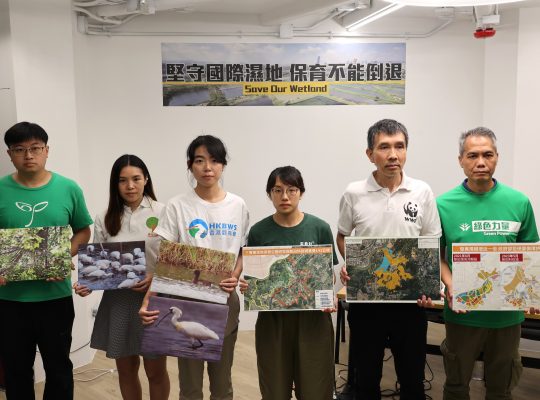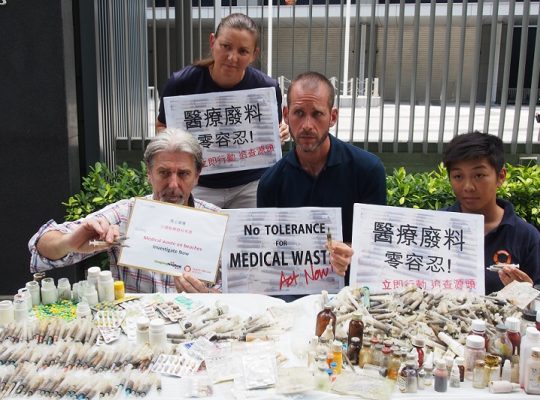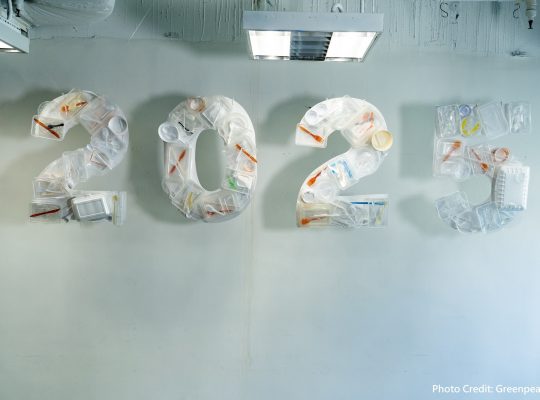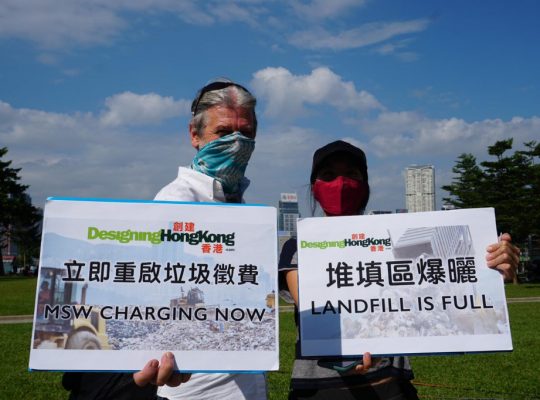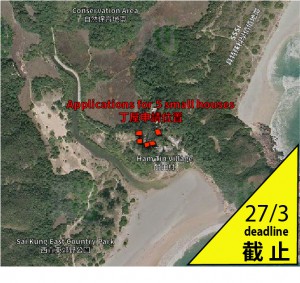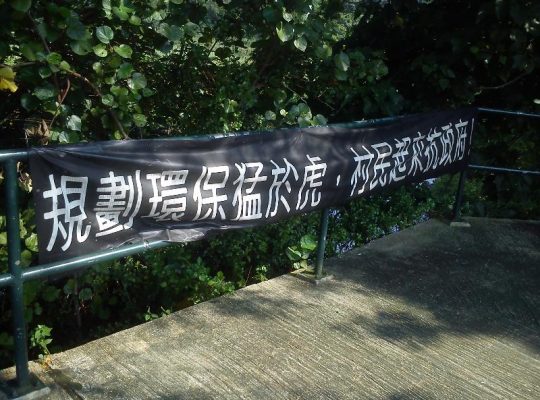徵費、源頭分類、回收
三大元素,決一不可
議員聯署:
https://docs.google.com/forms/d/e/1FAIpQLSdfolxAs44alWP0_dRCEAg_HS9gLB5s9MJA_sMXHDLqYr0LkA/viewform
公眾聯署:
https://www.supporthk.org/?petition=%E6%94%B9%E5%96%84%E9%83%BD%E5%B8%82%E5%9B%BA%E9%AB%94%E5%BB%A2%E7%89%A9%E7%AE%A1%E7%90%86


政府曾在2013年制定目標,務求「在2022年將每日人均垃圾棄置量減至0.8公斤」。然而,垃圾棄置量不跌反升,更在2018年創新紀錄,每日人均垃圾棄置量達到1.53公斤。現有的回收計劃無法提高回收量,例如PET膠樽的出口回收率從8.5%(2016)大幅降至0.23%(2018)。三個戰略性堆填區面臨巨大壓力,並快將於2020年代末飽和。如果再不採取行動減少都市固體廢物,我們可能只靠覓地,以容納更多焚化爐或興建第四個堆填區,甚至犧牲郊野公園土地。屆時,我們需要作出更具政治敏感的決策。
垃圾徵費是政府回收塑膠和廚餘等廢物的相關政策的關鍵。回收、源頭分類和徵費是解決都市固體廢物的三大重要元素,決一不可。對比其他司法管轄區,香港的垃圾管理已大大落後。以往很多相關政策措施都是空談。延遲推出垃圾徵費將帶來不可想像的後果。如果垃圾徵費未能在來年施政處理,則只能在3-5年後重提。都市固體廢物將無法重大改善。
為改善香港的都市固體廢物管理,政府需採取以下的策略:
1. 應用策略於每種香港都市固體廢物 (立法會資料研究組,2019年): 廚餘 (34%)、廢紙 (24%)、塑膠垃圾 (20%) 和其他垃圾 (23%);
2. 應用「污者自付」、「源頭分類」 和 「生產者責任計劃」三大政策工具及理念,以解決都市固體廢物問題;
3. 每年撥款約8 至10 億元支持本地回收業,推動不同的減廢及回收措施;
4. 把垃圾徵費所得的資金用於本地回收業,達至可持續發展;
在採取垃圾徵費同時,創建香港建議以下廚餘和塑膠回收的相關措施:
立法規管和增加設施,以支持回收和廢物管理:
1. 將廚餘回收網絡擴展至全港18個區的食環署垃圾收集站和公屋;
2. 向各區私人屋苑提供資源、經濟誘因和定期維修服務,並為承辦商員工提供培訓,以達至可持續廚餘回收;
3. 投資廚餘回收技術,為回收業創造更多職位空缺,例如物流運輸和技術支援;
4. 提升公民減廢意識,教育公眾分類廚餘;
塑膠回收
1. 擴展「塑膠可回收物料回收服務先導計劃」至全港18區,推動公眾進行回收;
2. 就即棄膠樽實施生產者責任制;
3. 檢管即棄餐具;
4. 禁止在個人護理產品中使用微塑膠;
5. 禁止使用發泡膠盒;
6. 檢管食品過度包裝;
7. 檢視現有的公共飲水機的衛生情況,務求在肺炎疫情下,巿民能安心使用飲水機,並建立公共飲水機網絡。


Let’s approve municipal solid waste charging
Waste Levy, Source Separation, Recycling – 3 elements, not one less
DC/LC member petition:
https://docs.google.com/forms/d/e/1FAIpQLSdfolxAs44alWP0_dRCEAg_HS9gLB5s9MJA_sMXHDLqYr0LkA/viewform
Public Petition:
https://www.supporthk.org/?petition=lets-improve-our-municipal-solid-waste-management&lang=en
Background
In 2013, the government set the goal of ‘reducing the volume of daily disposal of garbage per capita to 0.8 kg in 2022’. Yet, per capita daily disposal of municipal solid waste (MSW) continues to increase every year. A record high of 1.53kg was reached in 2018. Under the current programs, recycling fails to improve. For example the export recycling rate of PET bottles fell from 8.5% (2016) to 0.23% (2018). Our three strategic landfills are under pressure and are about to saturate this decade. If nothing more is done to reduce MSW, we may have to explore new sites for incinerators or landfills. This would likely impact our country parks. Once the landfills are full, it will be politically difficult to stop this from happening.
The MSW Bill enabling charging is the linchpin in government’s waste policy and projects. Waste levies are important in promoting source separation of domestic waste and the successful expansion of our recycling capacity. Without waste charging, the separation and reduction of waste and the recovery of useful materials for recycling will fail. Hong Kong’s waste reduction management is already lagging behind other jurisdictions. Many policy initiatives have turned into broken promises. The delay of the waste charging bill will make it ever more difficult to achieve high levels of recycling. If the Bill is not dealt with within this term of government, the Bill will be delayed by 3-5 years. This unacceptable.
Improving Hong Kong’s municipal solid waste management requires key actions in the Policy Address:
- Strategies to address all types of municipal solid waste in Hong Kong (LegCo research paper, 2019): food waste (34%), paper waste (24%), plastic waste (20%) and others (23%);
- Reconfirm the principles: Polluters Pay, Source Separation of Waste, and Producers’ Responsibility;
- Allocate HKD 800-1000 million for waste reduction and recycling; and
- Apply the funds generated from waste charging in support of the recycling industry.
Implement legislation, regulations and infrastructure in support of recycling and waste management:
- Extend the collection network of food waste collection across 18 districts, to all FEHD Refuse Collection Point and public housing estates;
- Allocate resources and financial incentives for maintenance and contractor staff training for food waste collection in all private housing estates;
- Invest in food waste technology and create more jobs in recycling industry, e.g. logistic and technical support for food waste collection services;
- Educate the public on waste reduction and separation of food waste.
Plastic waste recycling
- Extend the pilot schemes of plastic collection to all 18 districts to provide convenience to the public;
- Implement the producer responsibility system for beverage (disposable) containers;
- Retrofit and expand public water dispensers for hygienic and COVID-proof bottle refilling;
- Regulate disposable tableware;
- Regulation of excessive packaging of food products;
- Ban the use of styrofoam and microplastic in personal care products

